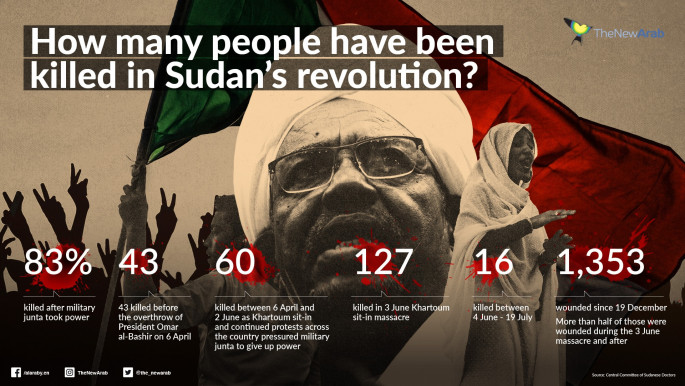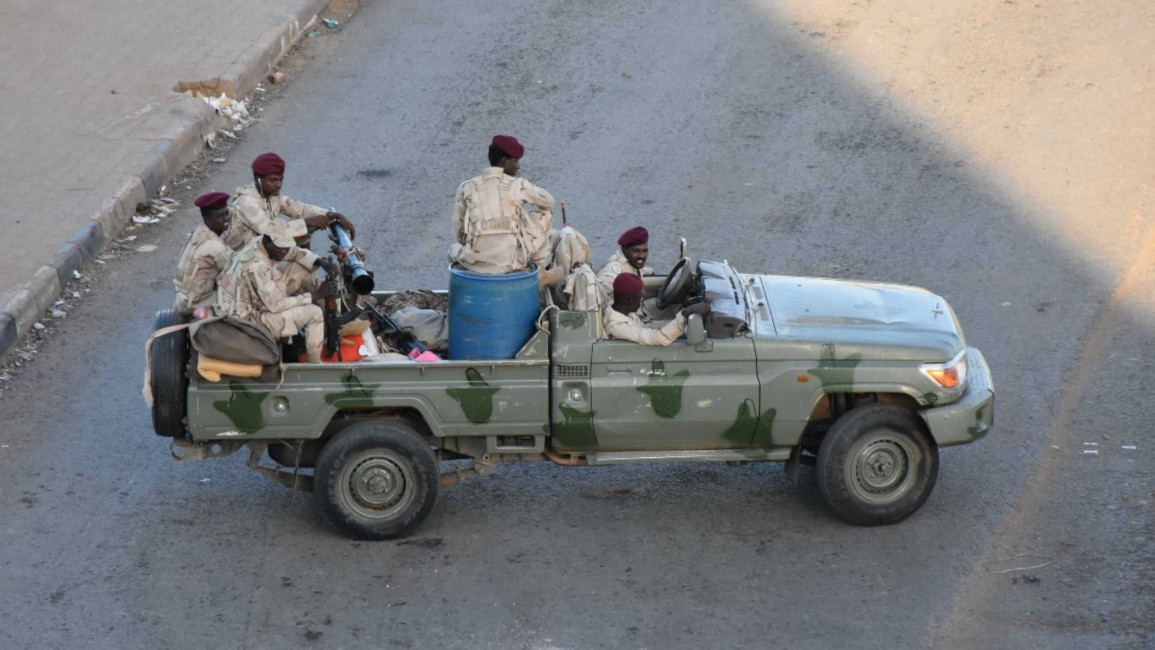Follow us on Facebook, Twitter and Instagram to stay connected
Death toll of Khartoum's June massacre almost twice as high than original figure: rights group
Sudanese security forces deliberately killed scores of people, possibly as many as 241, in a brutal crackdown on a pro-democracy protesters last June, an international rights group said Thursday.
It was the deadliest episode against a months-long protest movement that kicked off in late 2018 and led to the ouster of veteran president Omar al-Bashir in April 2019 and to civilian rule later that year.
Thousands of Sudanese protesters had camped outside the army headquarters in Khartoum demanding Bashir's ouster and kept up their sit-in even after his departure to protest against military rule.
On June 3, armed men in military fatigues moved in on the protest camp and dispersed thousands of demonstrators.
In the ensuing days-long crackdown, scores were killed and wounded.
Doctors linked to the protest movement have said at least 128 people died in the violence. Authorities gave a lower death toll of 87 and denied ordering the sit-in dispersal.
But in a scathing report titled "Chaos and Fire", the US-based NGO Physicians for Human Rights (PHR) said the crackdown was a "massacre" that could have claimed up to 241 lives, according to estimates.
"Sudanese security forces launched a series of planned, violent attacks against pro-democracy protesters that killed up to 241 people and injured hundreds more," the report released Thursday said.
The group said its findings were based on multiple witness testimonies, consultations with health workers and analysis of thousands of pieces of online footage and images of the dispersal.
Killings and torture
"Sudanese security forces were responsible for perpetrating unconscionable acts of violence against pro-democracy demonstrators," said the report.
Those acts included "extrajudicial killings and torture, excessive use of force, sexual and gender-based violence, and the forced disappearance of detained protesters," it added.
The report said that in many cases, perpetrators identified themselves to their victims as belonging to the Rapid Support Forces, a then-paramilitary group now incorporated into the Sudan Armed Forces.
"Those forces were armed with weapons including tear gas, whips, batons, sticks, pieces of pipe and firearms, including Kalashnikov assault rifles," it said.
Interviewees had described seeing security forces "shoot unarmed protesters in the head, chest and stomach from a distance" and that uniformed men "beat people with batons, whips and the butts of their rifles".
The brutality described was supported by PHR's clinical evaluations of wounds of survivors, the report said.
Phelim Kine, PHR's research and investigation director, called the dispersal "an egregious violation of human rights".
PHR called on UN member states to sanction Sudanese officials responsible for the violence.
In August, Sudan's military leaders and others from the protest movement leaders formed a civilian-majority body to rule the country for a transitional period of three years.
The new authorities set up in October an independent commission to investigate the events of June 3.
The team has yet to release its findings. 


![Minnesota Tim Walz is working to court Muslim voters. [Getty]](/sites/default/files/styles/image_684x385/public/2169747529.jpeg?h=a5f2f23a&itok=b63Wif2V)




![Debris near Rafic Hariri International Airport [Getty]](/sites/default/files/styles/image_212x120/public/2176162423.jpeg?h=a5f2f23a&itok=XLiO6WHk)
![An Israeli air strike on Jabalia killed teenage journalist Hassan Hamad [Screengrab/X]](/sites/default/files/styles/image_212x120/public/2024-10/hassan%20hamad1.jpg?h=c12e0b96&itok=KstD_5xk)
